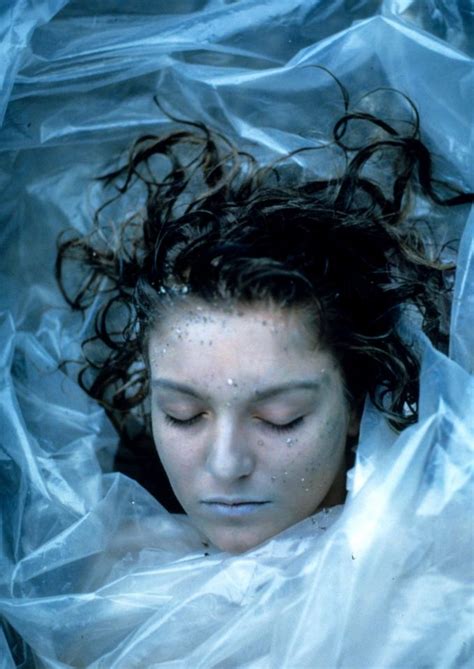*No spoilers are present in this article
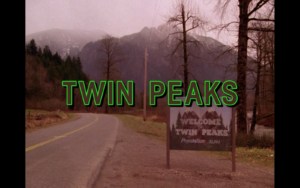
Twin Peaks aired two seasons on ABC from 1990-91 (both seasons are available on Netflix). After the show’s cancellation, the prequel film Twin Peaks: Fire Walk With Me was released, to little fanfare and critical and box office failure, in 1992. Then, in a move that shocked and delighted all Twin Peaks fans, the show made a triumphant, unforgettable comeback on Showtime this past summer, 25 years after Twin Peaks: FWWM. Created by legendary filmmaker David Lynch (Mulholland Drive, Elephant Man, Inland Empire, and Blue Velvet) and Mark Frost (Fantastic Four, Hill Street Blues), Twin Peaks follows the lives of the inhabitants of the town Twin Peaks after the murder of their beloved homecoming queen, Laura Palmer. FBI agent Dale Cooper enters the scene after Laura’s death; he is the “main” character, if you will, but Twin Peaks doesn’t really do “main characters” – everyone has their own, often separate, story.
Twin Peaks is not for everyone – none of Lynch’s works fit the general mold of the American public. However, no show has ever made me think, or try to decipher the meaning of every little character interaction, more than Twin Peaks. Genre-wise, it has a little bit of everything, as comedy, crime, drama, fantasy, horror, and even soap opera elements are featured in the show.
What Makes Twin Peaks Unique and Revolutionary?

Well, I wrote a ten-page research paper on this very subject for an English final, but my guess is none of you want to read my flowery, intense 3553-word masterpiece (hey, I got an A!), so I’ll sum it up for you.
In basic terms, before Twin Peaks, the prototypical crime drama was straightforward – the bad guy did something wrong (usually killing someone or robbing a bank, or something along those lines), the good guys raced against time to catch him, and the good guys won in the end. All of this action would take place in the space of a single episode – only in specially-billed two-part episodes did this not occur (in the vast majority of cases). However, as those of you that have watched any David Lynch works know, Lynchian works are never straightforward, and are often intentionally ambiguous and hard-to-follow. Twin Peaks is no exception, as the inclusion of the fantasy genre likely tells you. Furthermore, the show doesn’t follow typical elements of the procedural at the time; there isn’t a new criminal every episode or two. That was unheard of at the time, as hour-long crime dramas were expected to be, well, hour-long crime dramas, not a mixture of soap opera, crime, fantasy, and horror that Twin Peaks is, and certainly not a show where if you miss a week, you’ll be behind in the story, a la Twin Peaks. Thanks to Twin Peaks, however, shows such as The Killing (2011-14), Hannibal (2013-15), Fringe (2008-13), and The X-Files (1993-present) were able to gain their footing in an increasingly less typical crime drama environment.
Even more so, before Twin Peaks, crime dramas would never include fantasy or soap opera elements – it just wasn’t something that was even on the creators’ minds. Now, we aren’t surprised to see non-traditional crime drama elements such as these. This is thanks, in large part, to Twin Peaks; it was revolutionary at the time.
Twin Peaks’ Uniqueness
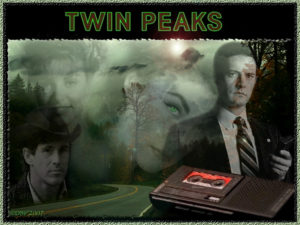
I will be perfectly honest here: the first time I watched the pilot episode of Twin Peaks, I couldn’t even finish the episode. I thought the acting was horrible and the storyline, while intriguing, wasn’t quite unique enough to allow me to look past what I deemed horrible acting. Then, about a month later, I decided to give the show another chance. After I stopped cringing at some of the acting and made it through the first episode, I realized something: the acting wasn’t bad at all; it was simply different. Lynchian works, of which I had only seen one of (Elephant Man) before beginning Twin Peaks, are simply different – the rules for typical, “good” acting don’t apply to Lynch. Once I realized this, I fell in love with the show.
Some of the storylines not involving Laura are simply ridiculous (especially in the middle of the second season, when Lynch left the show due to a major dispute with ABC over the direction the show should take. Lynch returned for the jaw-dropping season two finale that served as the series finale before the summer of 2017 rolled around), yet the characters are so endearing and hilarious that the show never truly seems to have lost its way, even when certain characters are complaining for minutes on end about curtains, or losing their minds and believing that they are generals in the Civil War.
The first two seasons of Twin Peaks ushered in a new era of television in the States, and makes it one of the most original television shows of all-time. 2017’s Twin Peaks: The Return, however, comes quite close to trumping the original in its uniqueness and overall brilliance.
Twin Peaks: The Return (2017)
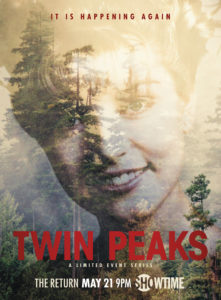
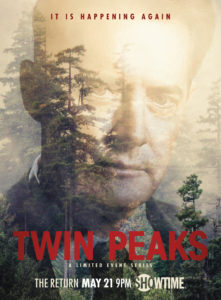
Twin Peaks: The Return (2017) may just be the unlikeliest show to ever grace our televisions. David Lynch returned to direct all 18 parts – he had not directed a movie/television show since Inland Empire in 2006. Lynch’s perfectionism is infamous; he will not release something unless it fits his vision to a T. Twin Peaks: The Return took three years to grace our screens after its initial announcement, and there was a brief month-long period when Lynch backed out of the project because he wanted more episodes. Showtime eventually obliged, and Lynch return a little over a month later.
Furthermore, the show’s return brought many actors out of retirement. Being that the original Twin Peaks features so many different characters and was filmed 25 years before The Return, it is safe to assume that many actors would have moved on to other projects, retired, or even, sadly, died by the time The Return was announced. This assumption proved to be correct, as a few actors refused to come out of retirement (most notably, Michael Ontkean, who played Sheriff Harry S. Truman in the original, and Michael J. Anderson, who played an important character in the original that will remain nameless due to the avoidance of spoilers). Others agreed to reprise their roles after years – or even decades – of retirement. Tragically, multiple actors, including Miguel Ferrer (Albert Rosenfield), Warren Frost (Doctor Hayward), David Bowie (Phillip Jeffries), and Catherine E. Coulson (the Log Lady) died during filming (all deaths were unrelated to filming, of course). Coulson filmed her final scene just four days before she died of cancer – this moment is tear-inducing (not a huge spoiler, but don’t watch if you are ultra-worried about spoilers).
The Return is one of the unlikeliest television shows to ever grace our screens, and proves to be one of the strangest, most revolutionary, as well. The revival is much darker than the original, and features moments that are simply impossible to fully comprehend, leaving much up to the viewers’ interpretation. People have dedicated their life’s work to trying to decipher what Lynch wants to get across; the articles on Twin Peaks are always incredibly interesting.
The last two episodes of the season (and, in all likelihood, the entire show – I would be absolutely floored if it came back; Lynch is getting older and his perfectionism wouldn’t let him make another season if it wasn’t absolutely perfect) are absolutely incredible, unlike anything I have ever seen before, as is the infamous Part 8. The most unique thing about The Return (and really Twin Peaks overall) is the fact that no one – and I mean no one – has any idea what is about to transpire on their televisions when they turn it on. We may see a man sweeping a floor (no spoiler) for two straight minutes, or we may be treated to twenty-straight minutes of no dialogue (Part 8!). No one, besides Lynch, has any idea what is going to transpire, and this makes the Twin Peaks, FWWM, and The Return absolutely incredible.
Wrap-Up
If there is any part of you that wants to try a crazy, original, mind-boggling, revolutionary show, watch Twin Peaks (and then FWWM and The Return). David Lynch will take you on a ride unlike anything you have ever taken before, and you will be left laughing, crying, and shocked right along with the characters. Twin Peaks is one of the most revolutionary, unique shows in the history of television, and is a must-watch.
Twin Peaks 9.75/10
Twin Peaks: Fire Walk With Me 7/10
Twin Peaks: The Return 9.5/10


